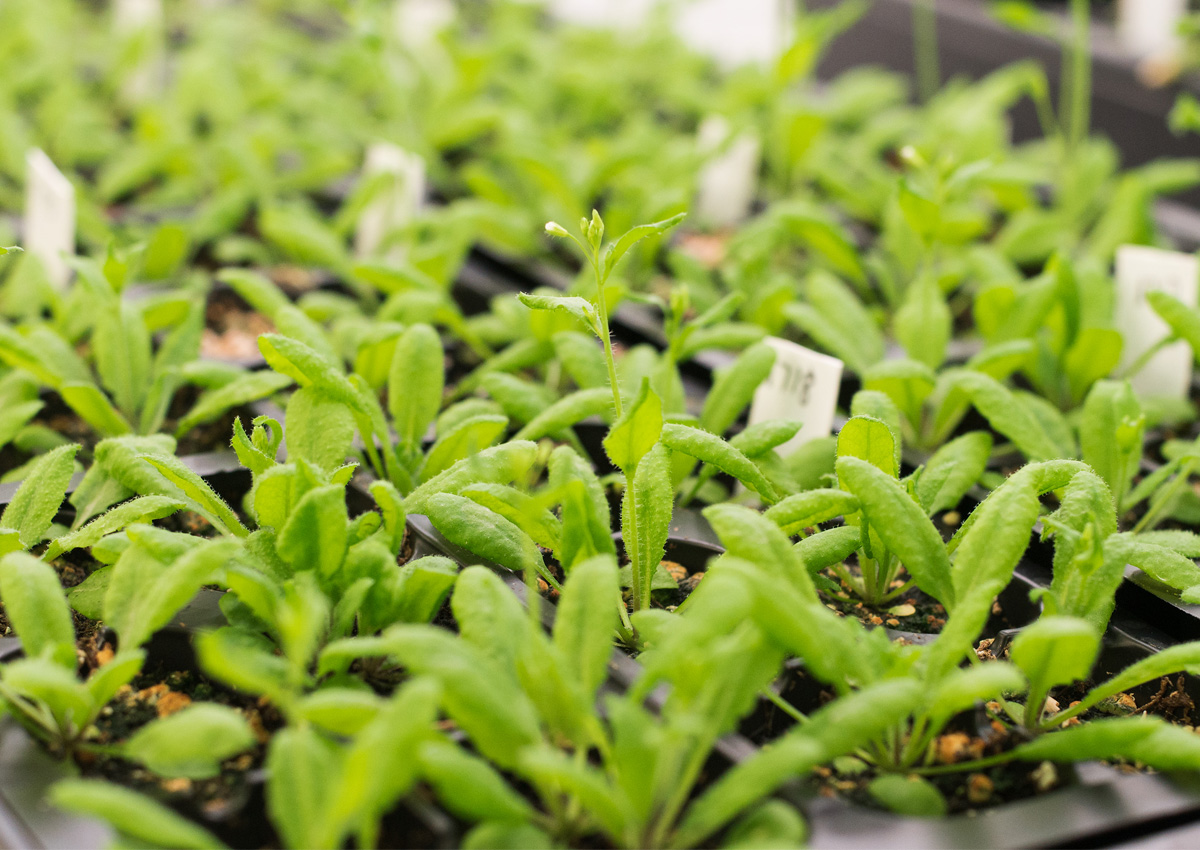
Researchers Identify Genetic Changes Responsible for "Plant Puberty"
August 28, 2024| |
Researchers from the University of York have identified the genetic changes linked to the developmental change in plants similar to "puberty" at different rates. Their findings, which could control the timing of plant development transition, could lead to better crop nutrition.
The developmental change called the vegetative-to-reproductive transition happens in a few days where plants slow down their leaf growth and develop reproductive organs instead. This physical change is important to farmers and consumers because it starts the process of nutrients in the leaves being diverted into the reproductive organs of the plant and eventually into their fruits and grains. Well-timed plant development means more nutritious food.
To investigate the factors that influence the timing of this transition, the researchers grew Arabidopsis thaliana in conditions where the soil, temperature, humidity, and light were as consistent as possible. In these highly controlled conditions, the plants showed signs of developmental transition on different days. When around half the plants had undergone the transition, the scientists measured the genetic activity of all the plants which were in “puberty”. The researchers identified specific genetic changes that correlated with the timing of this developmental change. They also discovered that plants start the process of killing their leaves even before the scientists saw visible reproductive structures.
For more details, read the article in the University of York News.
| |
You might also like:
- Study Identifies Proteins that Support Photosynthesis in Iron-Deficient Plants
- New Biofortification Method Transforms Leaves into Nutrient Stores
- Scientists Identify Protein that Influence Leaf Growth and Shape
Biotech Updates is a weekly newsletter of ISAAA, a not-for-profit organization. It is distributed for free to over 22,000 subscribers worldwide to inform them about the key developments in biosciences, especially in biotechnology. Your support will help us in our mission to feed the world with knowledge. You can help by donating as little as $10.
-
See more articles:
-
Plant
- Agricultural Biotech Market Estimated to Reach US$293.35 Billion by 2034
- Researchers Review the Impact of Animal Proteins in Plants
- Last Chance to Join ASCA7 in Bangkok
- Researchers Identify Genetic Changes Responsible for "Plant Puberty"
- Genetics Expert Outlines Lessons in Biotech Regulations
- ISAAA Inc. Provides Information on the Recent Developments in Gene Editing
-
Animal
- Experts Use CRISPR to Fight African Swine Fever Virus
-
Food
- Chinese Cherry Genome Reveals Genes for Firmer Fruit Texture
-
Read the latest: - Biotech Updates (February 18, 2026)
- Gene Editing Supplement (March 4, 2026)
- Gene Drive Supplement (February 22, 2023)
-
Subscribe to BU: - Share
- Tweet

